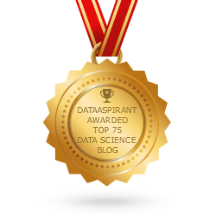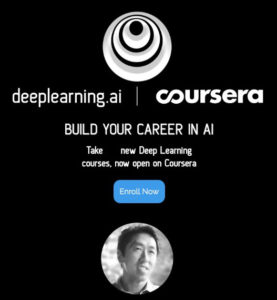Student’s Guide For Starting a Career in Data Science: Tips and Resources

Data science, once a niche domain in the vast world of technology, has rapidly evolved to become a cornerstone of modern industries. Businesses, governments, and organizations all across the globe now recognize the immense potential that data holds, not just as numbers in databases but as insights waiting to be discovered.
From making informed decisions to predicting future trends, the power of data-driven analysis is reshaping how our world operates.
Student's Guide For Starting a Career in Data Science: Tips and Resources
For those eager to delve into data science but unsure where to begin, this guide aims to shed light on the foundational skills required, academic pathways, and valuable resources to kickstart a promising career.
Essential Skills for Aspiring Data Scientists
At its core, data science is the art and science of extracting meaningful information from vast sets of data. It’s where statistical analysis meets advanced computing techniques, ultimately aiming to provide actionable insights.

This field integrates various components, including data analytics, machine learning, artificial intelligence, and predictive modeling, allowing for interpretations that can lead to smarter business strategies, efficient solutions to complex problems, and even breakthroughs in sectors like healthcare, finance, and entertainment.
Hard Skills You Need
- Programming: Mastery of languages like Python and R is crucial. Python, with its extensive libraries (e.g., Pandas, NumPy, and Scikit-learn), is especially popular in data science.
- Statistics: A solid grasp of statistics is key to understanding and interpreting data effectively. From hypothesis testing to probability, these concepts form the backbone of many data science techniques.
- Machine Learning: With the rise of AI, machine learning expertise is becoming increasingly valued. Familiarize yourself with algorithms, neural networks, and deep learning basics.
Soft Skills You Should Have
- Communication: Translating complex data findings into understandable and actionable insights for non-experts is invaluable.
- Problem-Solving: Often, data science is about finding solutions to complex issues or deriving insights from murky data.
- Critical Thinking: Being able to approach problems methodically and evaluate solutions critically is essential in ensuring the validity and applicability of data findings.
Embracing and mastering these skills can set the foundation for a successful journey in the dynamic and ever-evolving field of data science.
Academic Pathways to Data Science
While many paths lead to the world of data science, choosing the right academic background can provide an essential foundation. Typically, students gravitate towards degrees in Computer Science, Statistics, or Engineering, as these programs often embed critical analytical skills and programming expertise.
However, the appeal of data science is its interdisciplinary nature, and many successful professionals hail from backgrounds as diverse as Physics, Economics, or even the Humanities. What they share is a deep curiosity and a penchant for problem-solving.
As the field matures, we also witness a surge in specialized Master’s and PhD programs dedicated to data science. These advanced degrees delve deeper into the intricacies of data algorithms, big data management, and predictive analytics, offering students a competitive edge in the job market.
Self-Learning and Online Platforms
The digital age has democratized learning in unprecedented ways. Aspiring data scientists need not rely solely on formal education to acquire expertise. Online platforms like Coursera, Udemy, and edX have burst forth as treasure troves of knowledge, offering courses from renowned institutions and experts.
The strength of these platforms lies in their flexibility and range. Students can explore foundational concepts, advanced techniques, or even niche specializations—all from the comfort of their homes. Moreover, these Massive Open Online Courses frequently come with projects and real-world challenges, enabling learners to implement their knowledge practically.
Gaining Practical Experience
Theory and practice are two sides of the same coin when it comes to data science. While academic knowledge provides a solid base, real-world application cements understanding.
Internships offer an excellent avenue for this. By working alongside seasoned professionals, students can witness the lifecycle of data projects, from initial data gathering to the final presentation of insights. Additionally, personal projects cannot be understated in their value.
Tackling real-world problems, cleaning messy datasets, or even creating predictive models for fun can arm budding data scientists with tangible skills and a portfolio to showcase to potential employers. Platforms like Kaggle further amplify this practical experience by hosting data science competitions, allowing participants to challenge themselves and learn from peers globally.
Networking in the Data Science Community
The journey into data science isn’t solely about acquiring skills; it’s also about forging connections. By immersing oneself in the data science community, students can gain insights, collaborate on projects, and even discover job opportunities.
Conferences, seminars, and workshops are fantastic places to meet like-minded individuals, discuss the latest trends, and learn from pioneers in the field. On the digital front, forums and online communities act as hubs of knowledge exchange, fostering collaboration and discussions. Engaging actively in these spaces can open doors, both in terms of learning and career advancement.
Building a Stellar Resume and Portfolio

Once equipped with skills and experience, presenting oneself effectively to potential employers becomes paramount. A well-crafted resume, tailored to highlight data science expertise, can make a significant difference. But in this field, showing often trumps telling.
A robust portfolio, which may include detailed projects, GitHub repositories showcasing code, or even a personal blog elucidating data science concepts, can be a testament to a candidate’s prowess.
It’s not just about listing the skills but demonstrating the ability to apply them, draw insights, and communicate findings effectively. A stellar portfolio can often be the bridge between a potential job and an aspiring data scientist.
Preparing for Data Science Interviews

Transitioning from academic or self-learning environments to the professional arena requires adequate preparation, especially when it comes to interviews. Data science interviews often encompass a spectrum of challenges, from theoretical questions probing understanding of statistical models and machine learning algorithms to practical tests where candidates might be given a dataset and asked to derive insights.
Furthermore, behavioral rounds assess a candidate’s ability to work in teams, handle pressure, and communicate effectively. It’s imperative to be prepared for a multi-faceted evaluation.
Regularly practicing coding problems, brushing up on foundational concepts, and even conducting mock interviews can be immensely beneficial. Additionally, being well-versed in one’s projects and being able to discuss them articulately can leave a lasting impression.
Continuous Growth and Future Specializations
Data science, by its very nature, is an evolving field. As technologies advance and industries adapt, the tools, techniques, and specializations within data science will also shift. To remain relevant, continuous learning is essential.
While foundational knowledge remains crucial, keeping abreast with the latest developments, be it in Deep Learning, Natural Language Processing, or Data Engineering, ensures longevity in one’s career. Regularly attending seminars, enrolling in advanced courses, or even reading research papers can fuel this growth.
Moreover, as one progresses, identifying a niche or specialization can not only lead to expertise but also open avenues for roles that demand deep knowledge in specific areas.
Final Thoughts
Navigating the world of data science, with its myriad of opportunities and challenges, can sometimes feel as daunting as penning a scholarly thesis. Just as many students seek the best dissertation writing service to craft a perfect manuscript, guidance and mentorship are invaluable in the data science journey.
However, with the right resources, persistent effort, and a curious mindset, the path becomes more lucid.The future is data-driven, and for those willing to embrace the challenges, the rewards—both intellectual and professional—are immense.
By intertwining theoretical knowledge with practical application and continuously adapting to the changing landscape, aspiring data scientists stand at the threshold of a dynamic and fulfilling career.
Recommended Courses

Machine Learning Course
Rating: 4.5/5

Deep Learning Course
Rating: 4/5

NLP Course
Rating: 4/5




